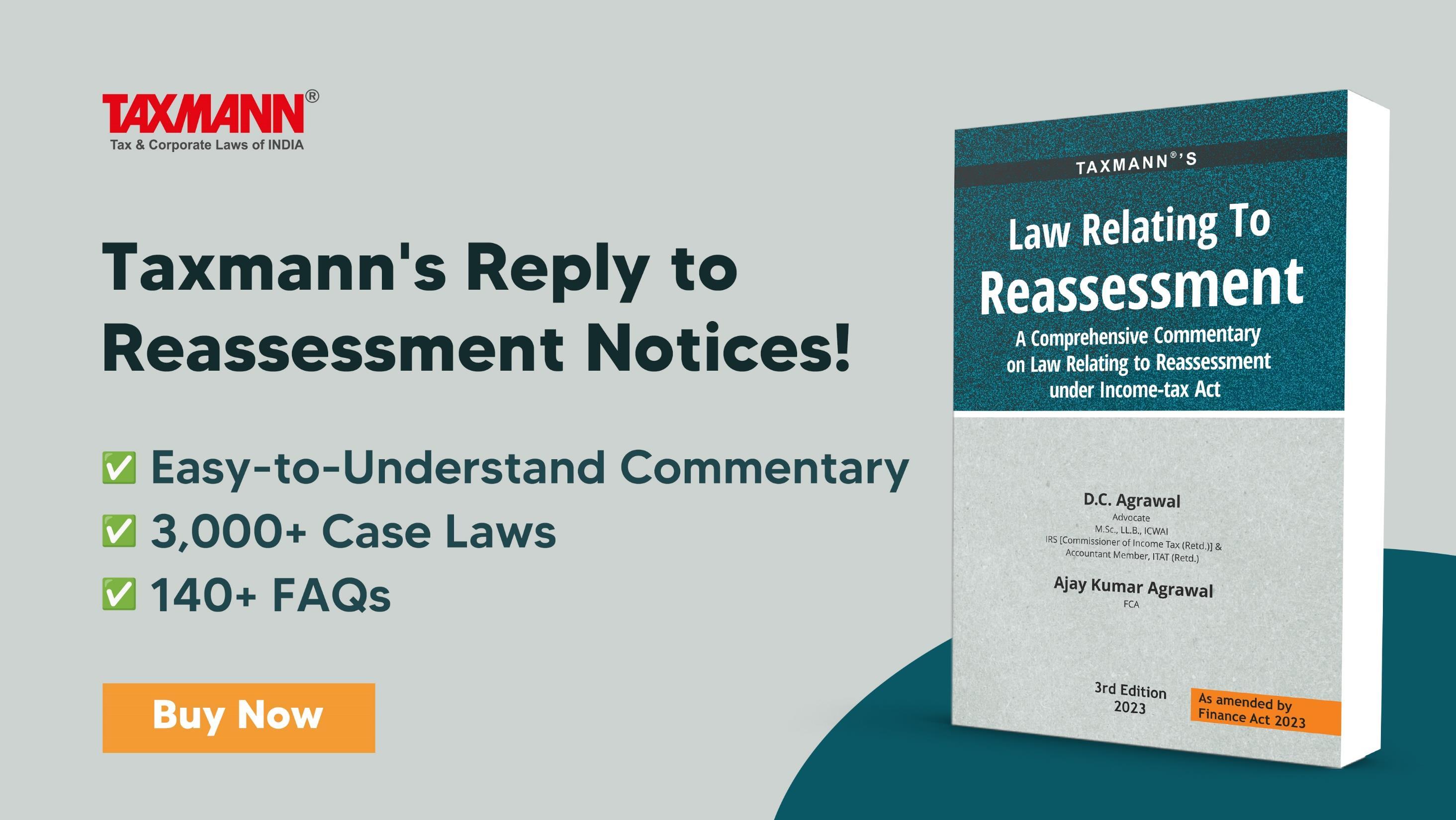














Presented By abhishek@snco.in
21st March 2024
Presented by: CA Darshak Shah
Prepared by: CA Abhishek Shah
Scope of re-assessment
Monetary limits to be considered to re-open a case
The basis on which the proceeding can be considered invalid
How to make a case stronger through different evidences
Period for which a case can be opened
Approval procedures to re-open a case
Key outcomes from significant judgements
Case studies
PresentedBy abhishek@snco.in



1. Subject to the requirements of sections 148 to 153, theAO may recompute the loss, the depreciation allowance, or any other allowance or deduction for such income, or it may assess or evaluate the income that has avoided assessment.
2. However,AO may review or reassess the income in relation to any issue that comes to light later on during the course of the proceedings under this section, regardless of whether the requirements of section 148Ahave been followed.
 Presented By abhishek@snco.in
Presented By abhishek@snco.in

Notice u/s 148 can be issued -
• Upto 3 years from end of RAY, or
• Upto 10 years from the end of RAY, if income has escaped assessment amounts to or is like to amount to 50 lakh rupees or more for that year.`
 Presented By abhishek@snco.in
Presented By abhishek@snco.in

A. Conduct any enquiry, if required, related to information with the prior approval of higher authority.

B. Provide opportunity of being heard to the assessee, by serving SCN to show cause as to why notice u/s 148 should not be issued to him on the basis of information.
C. In this case assessee has to reply within time period given in SCN. Time period shall not be less than 7 days but not more than 30 days from the date of issue of SCN. TheAO can extend this period if application made by assessee.
D. AO shall decide on the basis of material available on record including reply of assessee & passed an order u/s 148A that whether case is fit to issue notice u/s 148 or not, with the prior approval of higher authority.
Presented By abhishek@snco.in
In the past, the assessee was not needed to consult theAO before forming an opinion regarding income escaping assessment.
This resulted in circumstances where the opinion was contested, delaying the reevaluation process.
The government has introduced a new section 148Ato prevent such disputes, promote openness, and grant the assessee's access to a hearing.
 Presented By abhishek@snco.in
Presented By abhishek@snco.in

Aspect
Earlier Procedure
New Procedure Under Section 148A
Preliminary Inquiry Not explicitly required Allowed, with approval of specified authority
Opportunity for Assessee Not mandated Mandatory, with a specified timeframe for response
Assessing Officer’s Report Not necessary before notice issue
Decision only post-enquiry and assessee’s response
 Presented By abhishek@snco.in
Presented By abhishek@snco.in

Before 1.4.2021, theAct's Section 147 gave theAO the authority to assess or reassess the income that escaped assessment when he had "reason to believe" that any tax-chargeable income had avoided assessment for the relevant assessment year. Sec. 148(2) required theAO to document the reasons in writing.

Nevertheless, following the FinanceAct of 2021 amendment, no notice under Section 148 may be issued unless there is "information with the AO" indicating that the income has escaped assessment for relevantAY and theAssessing Officer has obtained prior approval of the specified authority to issue such a notice.
Presented By abhishek@snco.in
U/s 148A - Information which suggests income has escaped assessment is defined in exhaustive manner as:

a) Info. In accordance with the risk management strategy ( RMS ) formulated by CBDT, like info from SFT u/s 285BA or from investigation wing u/s 133C.
b) Any audit objection to the effect that the assessement for that RAY has not been in accordance with the provisions of this act.
c) Any info recvd under DTAA u/s 90 or 90A
d) Info made available to the AO under scheme u/s 135A
e) Info which requires action in consequence of the order of a court or tribunal.
Presented By abhishek@snco.in
Any information in the case of the assesse in accordance with the risk management strategy:


a) Does Info flagged in RMS have to be New Intangible Material?
- No, if info said that income is escaped , then it can be used by AO.
b) Is RMS defined under any law?
i. While the IT dept has not clarified the RMS, we may refer to it as any strategy that can identify the non-compliant or doubtful assesses through the use of algorithms, technology and information available.
ii. Also means the effective utilization of 3rd party info with the help of AI.
iii. Some of the sources where AO get the info like from 26AS, Insight Portal, Investigation Wing, GST Dept.

InAsstt. CIT Vs. Dhariya Construction Co. [2011] 197 Taxman 202 / [2010] 328 ITR 515 (SC) held that the Department sought reopening of the assessment based on the opinion given by the District Valuation Officer. The opinion of the DVO per se is not information for the purposes of reopening assessment under Section 147 of theAct.
AO has to apply his mind to the information, if any, collected.
AO has to make a prior inquiry
AO has to find out that whether really the income is pertains to assesse and must form a belief thereon
 Presented By abhishek@snco.in
Presented By abhishek@snco.in

Old provisions – Notice u/s. 148 could be issued for 4 years from the end of AY. Further, Notice u/s. 148 could have been issued upto 6 years from the end ofAY in cases where income escaping assessment is Rs. 1 Lakh or more.
New Provisions- If a notice under section 148, section 153A, or section 153C could not have been made, then no notice under section 148 shall be provided at any time in a case for the relevant assessment year commencing on or beforeApril 1, 2021. Due to having passed the deadline stipulated by clause (b) of sub-section (1) of this section, or section 153Aor section 153C, as applicable, at that point, as they were right before the FinanceAct, 2021, went into effect.
 Presented By abhishek@snco.in
Presented By abhishek@snco.in

A notice under section 148 may not be given for a further ten years if it could not have been issued prior to the Finance Act of 2021, according to the proviso to section 149 (1).
Recall that the deadline for issuance of notice was six years from the end of the relevant assessment year previous to the insertion of section 149.
The Finance Act, 2021's expanded time limit was not applicable for travel for the previous Asst. years beginning on or before April 1, 2021.
 Presented By abhishek@snco.in
Presented By abhishek@snco.in

Because of this, if a reassessment for assessment year 2015–16 is requested inApril 2022, it cannot be completed by using the previously available extended time period of 10 years, which was six assessment years prior.
In this case, no notice under section 148 of the act can be issued under the new scheme of reassessment, even though the Ld.Assessing Officer can go back up to 10 years. This is becauseA.Y. 2015–16 is already barred by limitation for issuance of notice u/s 148 under the new law read with earlier Section 149(1) clause (b) before its substitution by the FinanceAct' 2021 (limitation period of six years from end of the relevant assessment year).
 Presented By abhishek@snco.in
Presented By abhishek@snco.in
Example: 1 AO having information that income 60 lakhs for each year of Mr. KK escaped from AY 10-11 to AY 21-22. ΑO wish to issue notice u/s 148 on 17/08/21 for all the AY's, can he do so?
AY As Per Old Prov As Per Old Prov Conclusion


AY 10-11
AY 11-12 to AY 14-15
No, as notice can be issued only till 31/03/17.
No. as notice can be issued till 31/03/18, 31/03/19, 31/03/20, 31/03/21.
No, as notice can be issued only till 31/03/21
Yes notice can be issued as income escaping is 50 lakhs & more and its falls within 10 years time limit.
Notice cannot be issued u/s 148.
AY 15-16 to AY 21-22
Yes, notice can be issued as its falls within 6 years time limit.
Yes, notice can be issued as income escaping is 50 lakhs & more and its falls within 10 years time limit.
Notice cannot be issued u/s
148. As per first proviso to sec. 149, notice u/s 148 could not be issued as per old provision then AO cannot issue notice as per new provision.
Yes, notice u/s 148 can be issued on 17/08/21

Question:- Can we say apply the same logic and say that it will be time barred to open it after 6 AYs for exampleAY26-27
Answer:- NO. Because as per new law on 01.04.2021AO had powers to re-open the case ofAY 18-19 within 3 years, so afterAY 18-19 this proviso won’t have practical effects
5. SpecifiedAuthority for granting approval u/s. 151: Upto 3 years from the end of the relevantAY – Pr.CIT / Pr. DIT / CIT / DIT Where more than 3 years have elapsed from the end of the relevantAY – Pr.CCIT / Pr.DGIT / CCIT
 Presented By abhishek@snco.in
Presented By abhishek@snco.in

Upto 3 years from the end of the relevant AY – Pr.CIT / Pr. DIT / CIT / DIT
Where more than 3 years have elapsed from the end of the relevant AY –Pr.CCIT / Pr.DGIT / CCIT / DGIT

Presented By abhishek@snco.in


In the event of a dispute, the authorities will need to demonstrate that the approval process was correctly completed.
Following the ruling of the supreme court in the Chugmal Rajpal case, the high courts and tribunals have already established a solid body of precedent regarding the process of approval.
The aforementioned case law will also be applicable to approvals granted under Sections 148A(a) and 148A(d).
The approval must come from the precise authority listed in S. 151 as revised by the Finance Act of 2021, effective 1.4.2021; it cannot come from a lower or higher authority.
Thus, where the s.148 notice dtd.13.04.2022 was issued i.e. after three years only with the permission of the Pr.CIT for the assessment year 2018-19, reassessment proceedings have been held invalid in Mrs. Chitra Supekar v. ITO [2023] 149 taxmann.com 26/292 Taxman 511 (Bom.)
Presented By abhishek@snco.in `
Case Name:- Sanath Kumar Murali Vs ITO [2023] 152 taxmann.com 231/ 294 Taxman 80 (Kar.)
Facts:-
1. Areopening notice under section 148A(b) was issued upon the assessee on ground that the assessee had purchased a property and sold same after holding it for three years inA.Y. 2016-17 and itr for same has not been filed. Therefore, long-term capital gain arose on same for Rs. 55.77 lakhs had escaped assessment
2. The assessee had filed a reply and submitted that the capital gain was Rs. 33.85 lakhs and as the income escaping assessment did not exceed Rs. 50 lakhs, in terms of section 149(1)(b), notice under section 148 could not be issued as notice issued on 21-3-2023 in respect of the assessment year 2016-17 would not fall within the extended time provided under section 149(1)(b)
3. The department did not consider such reply filed by the assessee and passed an order under section 148A(d) 21/03/23 and further issued notice under section 148.
4. Petitioner challenged the order u/s 148A(d) forAY 2016-2017 & sought for quashing 148 notice before the Karnataka High Court.
Presented By abhishek@snco.in

Case Name:-Abdul Majeed v. ITO [2022] 140 taxmann.com 485 / 289 Taxman 304 (Raj.)
Facts:-
WhereAO issued reopening notice by passing order under section 148A(d) after expiry of three years from end of relevant assessment year on ground that assessee made undisclosed cash deposits amounting to Rs. 52 lakhs in his bank account,
assessee filed reply along with complete bank statements and claimed that only Rs. 19.39 lakhs amount of cash was deposited however no material was available byAO to show that cash deposits of more than Rs. 19.39 lakhs were made,
AO was not justified to presume that assessee might have more bank accounts merely on basis that cash deposits of Rs. 19.39 lakhs had escaped assessment and, thus, impugned order and notices were to be set aside

Presented By abhishek@snco.in

Case Name:- RahulAggarwal v. ITO [2023] 150 taxmann.com 391/ 293 Taxman 57 (Delhi)
Facts:
1. Where there was dissonance with regard to amount which had escaped assessment between input received from insight portal and what was noted in section 148A(b) notice,
2. Despite being informed by petitioner that there was discrepancy between what was stated in section 148A(b) notice and input received from said insight portal, since Assessing Officer proceeded on same course and passed an order under section 148A(d)
3. There was clear non-application of mind ofAssessing Officer by proceeding on same course and passing order under section 148A(d) and,
4. Thus, impugned notice and consequent order passed under section 148A(d) were to be set aside
Presented By abhishek@snco.in

The order atAnnexure-'A' dated 21-3-2023 passed under section 148A(d) of the I.T.Act is set aside and the notice atAnnexure-'B' dated 21-3-2023 issued under section 148 of the I.T. Act by the respondent No. l for theAssessment Year 2016-2017 is set aside on the basis of following points :
1. The "income chargeable to tax" that has eluded assessment is defined in Section 149(1)(b) as "amounting to or is likely to amount to fifty lakh rupees or more for that year."
In the event of a sale transaction, the income chargeable under the "capital gains" head would be determined in accordance with Section 48. This provision states that the cost of acquisition must be subtracted from the full consideration value in order to calculate the income chargeable under this head.Additionally, if the property purchased has been held for a period of time longer than three years, as stipulated by the second proviso to Section 48, the term "cost of acquisition" must be replaced with "indexed cost of acquisition."
This content
2. Now, The department did not consider such reply filed by the assessee and passed an order under section 148A(d) 21/03/23 and further issued notice under section 148.
Presented By abhishek@snco.in

Where capital gains are alleged to have escaped assessment for a year beyond three assessment years ,the income by way of capital gains as computed u/s.45 but not gross sale consideration should be equal to or exceed Rs.50 lakhs In other words, where the sale consideration is more than Rs.50 lakhs but the apparent capital gains computed u/s.45 are less than Rs.50 lakhs, no resort can be made u/s.148 as the same is impermissible u/s. Sec.149(1)(b) .


The assessee can submit the below mentioned documentary evidences before theAssessing Officer to establish the factum of purchases:
a. Letter of confirmation of suppliers or the confirmation of ledger account duly signed by the parties
b. copies of bank statement reflecting the entries of payment through account payee cheques to suppliers,
d. detail of stock inventory.

c. copies of invoices for purchase and
Presented By abhishek@snco.ine. Inward register maintained at registered premises with Date, Name of Suppliers, GST number, Taxable Value, GST, Way bridge Receipt, inward time when goods taken in factory , signature of transporter , Vehicle Number and many more details ;
f. Bilty/Goods Receipt Note of the transporter of goods;
g. Detail of Stock Register reflecting the quantity of material purchased and subsequently sold
h. For manufacturing concerns, the assessee may have to furnish requisite production record to justify the consumption of rawmaterial/consumables purchased for achieving the output/production.
i. Tallying the Purchase Value and Purchase Quantity as per books of account with the GST returns as like GSTR 1 and GSTR 3B filed with the authority.
j. In case GST number of seller is cancelled or suspended , Appeal filled by seller or action taken by seller to activate that GST number
k. Try to establish movement of goods with sufficient proof.

 Presented By abhishek@snco.in
Presented By abhishek@snco.in
l. Itr , balance sheet and pnl
m. Industrial analysis to prove that by making this amt of manufacturing or sales, this minimum amt of raw materials or goods will be required as per prevailing trend in such industry.



